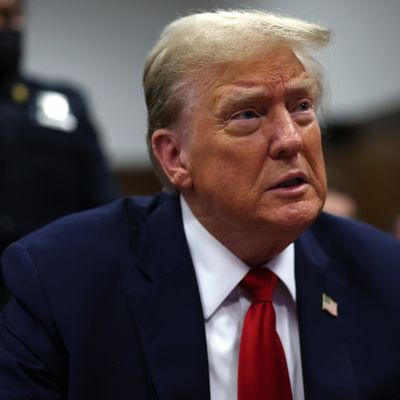
Ask any defense lawyer whether the criminal trial process inherently favors prosecutors, and brace for an earful.
Prosecutors get to open first and close last. (Remember the lessons from Psychology 101 about primacy and recency: Whatever an audience hears first and last tends to resonate most.) Judges — far more of whom are former prosecutors than defense counsel — often show respect and even deference to prosecutors but sometimes treat defense lawyers as pesky interlopers of dubious candor and motive. Prosecutors get to preen about how they represent “the people” or “the United States,” while defense lawyers often stand alone for the unsympathetic accused. In many courtrooms, prosecutors occupy the table right next to the jury box, while the defense team sits on the opposite side of the courtroom. As one frustrated defense lawyer memorably said to me, “You guys are so spoiled — you have every fucking edge. You’d have to be a moron to lose a case.” I heard variations of this (eminently fair) complaint countless times.
Of course, we prosecutors have our snappy response at the ready: “Hey, if you don’t like it, you’re welcome to carry the burden of proof.” (Trust me, it’s snappier when said among lawyers.) The point is that for all the prosecutor’s structural advantages, we still bear the heaviest burden of all: We must prove every legal element of our case, beyond a reasonable doubt and to the unanimous satisfaction of the jury. If one juror out of 12 has a mild twinge of uncertainty about one component of a crime, then there can be no conviction.
As we enter the homestretch of the first-ever criminal trial of a former U.S. president, the burden of proof looms large. It’s such a deeply embedded principle underlying our criminal justice system that we often overlook its importance. It’s not simply about whether the defendant is a better person, or worse, or way, way, way worse, than the prosecution’s witnesses. It’s about whether the prosecution can prove its case — which, here, is ultimately a small-bore charge turning on the nuances of internal accounting practices — beyond a reasonable doubt.
This has become a common retort to the self-evident observation that some of the prosecution’s key witnesses have previously lied under oath, are consumed by personal vitriol, and have profiteered around the case: “But Donald Trump does all of those things, and more, all the time — he’s just as bad, if not worse!” Sure, the argument goes, Michael Cohen is a proven liar driven by an all-consuming personal vendetta — but so is Trump! Sure, Stormy Daniels has made money by selling her story and tacky tchotchkes — Trump indictment candle, anybody? — but isn’t Trump the king of merchandising sleaze? Maybe David Pecker makes a living in “checkbook journalism,” but Trump was the willing beneficiary!
This line of argument is persuasive in a casual setting. You can win a debate in any bar, kitchen, or greenroom with the observation that Trump is a worse human being than any prosecution witness. But that alone doesn’t get the job done in court, at least not if the jurors actually follow the law.
President Joe Biden is fond of saying, “Don’t compare me to the Almighty, compare me to the alternative.” It’s an insightful and persuasive political line, but the opposite applies in a criminal trial. Prosecutors must prove not merely that their case is better than the alternative, but that their evidence satisfies the Almighty burden of proof.
Let’s consider this: What happens if the jury concludes that both Michael Cohen and Donald Trump are deeply dishonest, immoral fiends? The answer: a not-guilty verdict. If the jury rejects Cohen’s testimony, then the prosecution can’t tie Trump directly to the charged falsification of business records offenses, and he walks — even if the jury despises the former president even more than all the prosecution’s witnesses combined.
Judge Juan Merchan (a former prosecutor, by the way) stepped perilously close to improperly shifting the burden of proof in one recent sidebar. Addressing the kerfuffle about whether Daniels had gone into excessive detail about her 2006 sexual encounter with Trump, Judge Merchan said (outside the jury’s presence) that Trump’s lawyer’s denial of the incident in his opening statement “puts the jury in a position of having to choose who they believe: Donald Trump, who denies there was an encounter, or Stormy Daniels, who claims that there was.”
Wrong. Judge Merchan has done an exceptional job running this trial thus far, but he’s off base here. It’s not about whether the jury believes Daniels or Trump more than the other. It’s about whether the prosecution can meet its larger evidentiary burden of proof beyond a reasonable doubt. If the judge were to instruct the jury to the same effect — he won’t, he’s too good to commit such a glaring error — then the result would be an instant reversal by the appeals courts.
None of this is to suggest Trump is likely to beat the case. I’ve said all along, and I still believe now, that conviction is more likely than not. Cohen’s testimony is corroborated substantially enough by checks, emails, phone records, and financial records that the jury can reach a guilty verdict without taking a blind leap of faith on Cohen’s word alone. But a trial isn’t a popularity contest, or a morality play, or a who-started-it beef. If the jury concludes that they’re all a bunch of untrustworthy, opportunistic scoundrels, then — even if Trump is the worst of the worst — the legally mandated verdict is “not guilty.”
This article originally appeared in the free CAFE Brief newsletter. You can find more analysis of law and politics from Elie Honig, Preet Bharara, Joyce Vance, and other CAFE contributors at CAFE.com






























